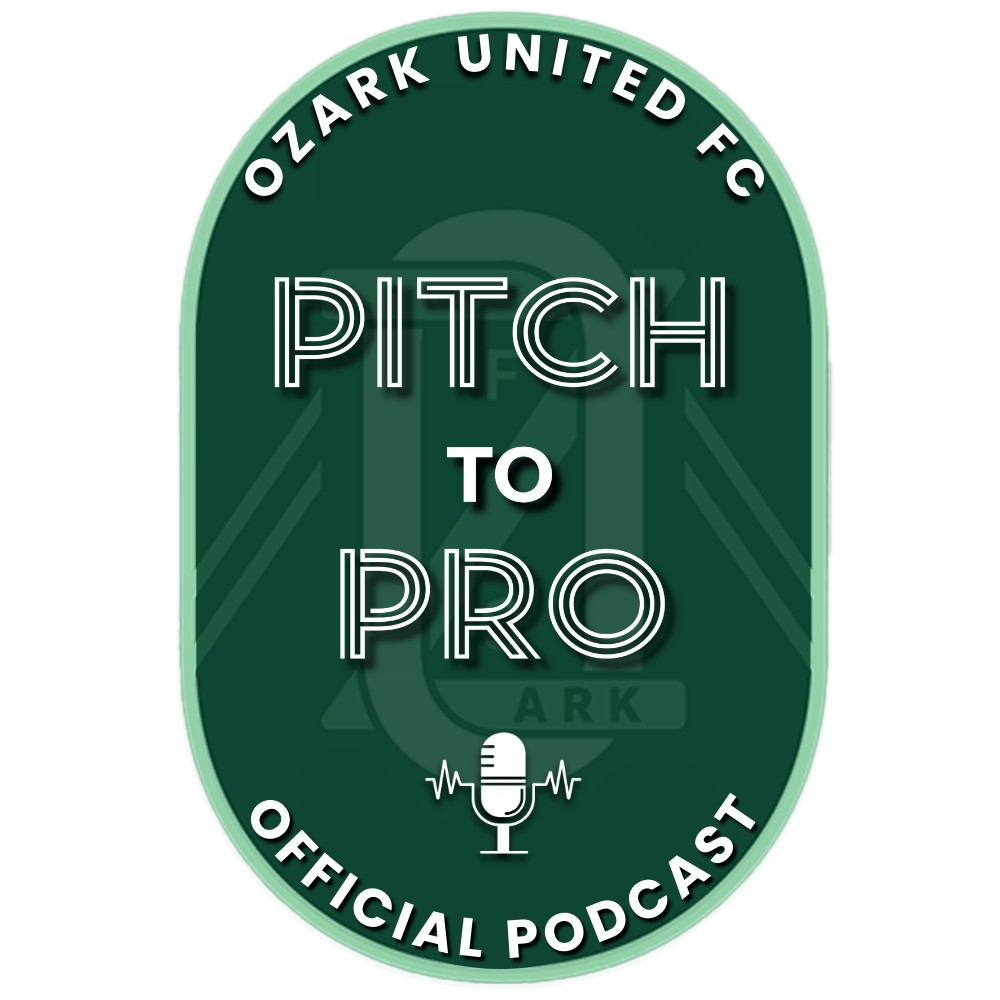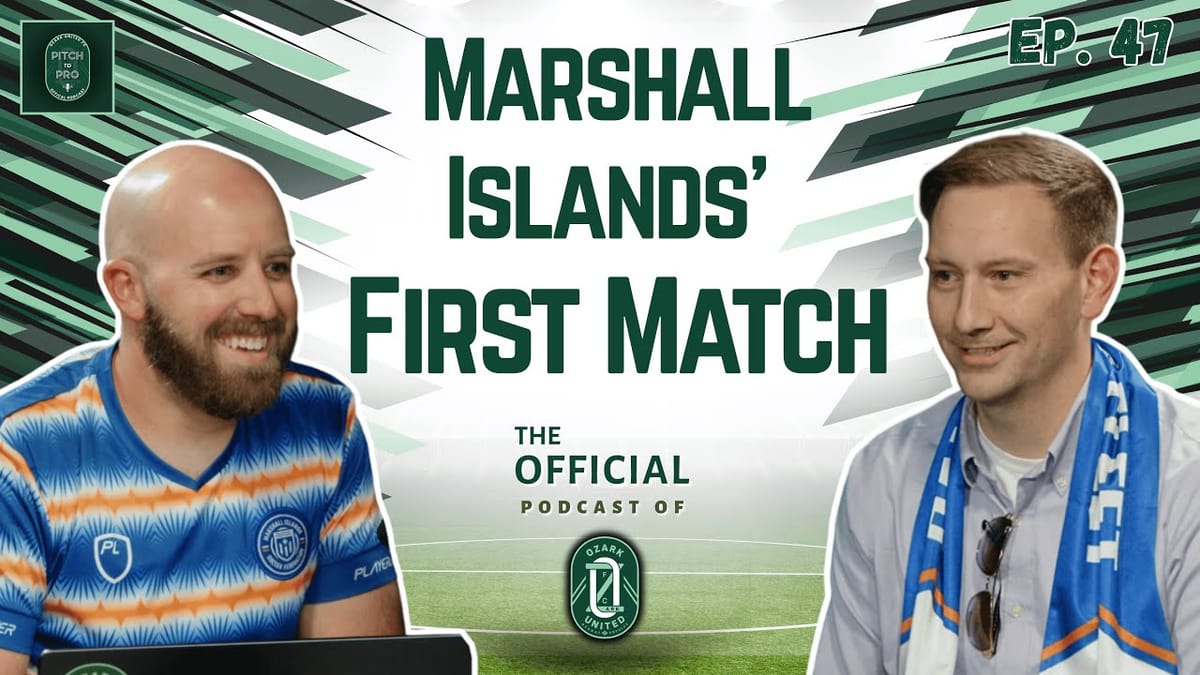The beautiful game of soccer has reached nearly every corner of the globe, but until now, one nation has remained on the sidelines. The Marshall Islands stands as the last UN-recognized country never to have played a match, a distinction about to change thanks to an extraordinary grassroots effort with surprising ties to Northwest Arkansas.
Woody Watson, VP North American Operations of Marshall Islands Soccer Federation, shares the remarkable journey that began when his wife discovered an AP article about UK-based soccer enthusiasts working to bring the sport to the Marshall Islands. What caught Watson's attention was the connection to his new home in Northwest Arkansas. Springdale hosts the largest Marshallese population outside the Pacific, a community established when islanders relocated for employment opportunities following nuclear testing in their homeland.
The federation has developed multiple initiatives beyond the men's national team, including women's programs, youth development, and coach education. But what makes their story particularly compelling is the urgency behind their mission. With many Marshall Islands atolls sitting just feet above sea level, rising oceans threaten the very existence of the nation. Their award-winning "No Home Kit" campaign, featuring a white jersey with portions dissolved away to symbolize their eroding homeland, uses soccer as a platform to raise awareness about climate change.
The upcoming Outrigger Cup represents more than just the Marshall Islands' sporting debut; it's a race against time to establish a national soccer identity before climate change potentially alters their homeland forever. As Watson poignantly notes, they're "expediting this program because a nation that possibly might not exist in some capacity in 10 years is able to get their first match played." Through the dedication of volunteers working across multiple time zones, this small Pacific nation is about to make sporting history while highlighting one of our planet's most pressing challenges.
More About this Episode
From The Pacific to the Pitch: How the Marshall Islands Are Writing Soccer History in Northwest Arkansas
As soccer continues its meteoric rise in the United States, especially in places like Northwest Arkansas, some of the most compelling stories are those that blend sport, identity, and community. Few narratives encapsulate that as powerfully as the journey of the Marshall Islands Soccer Federation. While Ozark United FC builds its foundation in the USL and grows the game locally, the Marshall Islands are on a parallel path of transformation, laying down the grassroots for what could soon be one of soccer’s most historic debuts.
This isn't just about forming a team. It's about giving voice to a nation, a diaspora, and a global movement that goes far beyond the pitch.
The Last Nation Without a National Team
You read that right. The Marshall Islands are officially recognized by the United Nations, yet they hold a rare distinction: the last country on Earth without an official 11v11 international soccer match in their history.
That’s about to change.
Next week marks a pivotal moment for the Marshall Islands Soccer Federation (MISF) as they prepare to play their first-ever international match. It's not just a friendly. It’s a landmark in the global game, one that echoes much further than the goals scored or results tallied. This is about representation, resilience, and reclaiming space in the global football conversation.
Why Northwest Arkansas?
If you're wondering why a Pacific island nation’s soccer federation is rooted in Springdale, Arkansas, the answer lies in both history and community.
Following decades-old ties stemming from nuclear testing and subsequent labor agreements, Springdale is now home to the largest Marshallese population outside the Pacific Islands. This vibrant, close-knit community has turned the region into a cultural and social base camp a second home for many Marshallese families.
For the MISF, this made perfect sense. Building a soccer program that could bridge the gap between island and diaspora meant finding a place that could serve both logistically and symbolically. And Springdale, already blossoming with soccer culture thanks to clubs like Ozark United FC, was the perfect fit.
Meet the Man Between the Ponds
At the heart of this story is Woody Watson, VP North American Operations for the Marshall Islands Soccer Federation. Woody, now based in Fayetteville, Arkansas, didn’t grow up in the islands; he grew up outside Kansas City, Missouri, but his ties to Northwest Arkansas run deep.
From boyhood trips to Beaver Lake and Eureka Springs, to getting married at Thorncrown Chapel, Woody’s journey feels woven into the local fabric. His soccer story mirrors that of so many Americans: recreational leagues, high school glory days, and lifelong fandom of teams like Sporting KC (or the KC Wiz, for the OGs out there).
But it was a chance article, an AP feature on the Marshall Islands’ quest to build a national soccer team that sparked Woody’s involvement. When he read that the effort was being spearheaded by a few UK-based coaches, Woody saw an opportunity and reached out.
“Springdale should be your base camp,” he told them. They listened, and now it’s all coming to fruition.
Building from the Ground Up: A Grassroots Model in Action
What’s happened since that initial outreach is nothing short of remarkable. This isn’t a federation backed by massive government budgets or corporate sponsors. It’s entirely volunteer-run, and its impact has been profound on both the local and international stages.
Here’s what the MISF has built:
- Men’s and Women’s National Team Camps: These players are young, driven, and often still in high school or college, many of them playing competitive soccer domestically.
- Youth Development Programs: Partnering with local schools like Sonora Middle School, the MISF is investing in the next generation. During match week, they’re running training camps for 5th to 8th graders, led by national team players and coaches.
- Grassroots Coaching Education: From the islands to Arkansas, they’re building a base of coaches trained to grow the game sustainably.
- Global Awareness Through Sustainability: Perhaps the most profound layer of this work is its connection to climate change. The Marshall Islands are among the world’s most vulnerable nations, facing existential threats due to rising sea levels.
The 1.5 Degree Initiative: A Kit That Speaks Volumes
One of the most powerful symbols of the MISF's mission is the “No Home Kit.”
This secondary jersey is more than a uniform, it’s a statement. With portions designed to look as if they're eroding or melting away, the kit visualizes the threat that climate change poses to the nation. As sea levels rise, parts of the Marshall Islands may be uninhabitable.
This unique and emotionally resonant design has gained international attention. In fact, The No Home Kit initiative recently received international recognition, a moment that not only honored the creativity behind the concept but drew attention to the broader environmental issues affecting Pacific nations.
All Eyes on the Outrigger Cup
The centerpiece of this next chapter is the upcoming Outrigger Cup, the Marshall Islands’ first-ever 11v11 international fixture. This isn’t just a symbolic exhibition. It’s a full-fledged, FIFA-regulation match that will mark the beginning of a new era for the nation.
Preparation for the event has been months in the making, involving coordination between volunteers across multiple continents and time zones. While the core operational crew is made up of just 20–25 people, the collective output has been staggering: from arranging logistics and securing equipment to ensuring that the match is live-streamed for a global audience.
Even the video broadcasting support has come from community donation, including camera gear provided by companies like Spiideo.
Why This Matters for Soccer, and for the World
For most nations, international soccer is a well-oiled machine. But for the Marshall Islands, this is unexplored territory. Every detail, training, logistics, kit design, and even where to train is being figured out in real time. That makes this not just a soccer story, but a case study in international collaboration, grassroots sport development, and human resilience.
And at the center of it all is Northwest Arkansas, a region proving that it’s more than ready to support global ambition through local action.
As Ozark United FC continues its own climb in the United Soccer League, there’s a beautiful synergy here: two different soccer stories, one shared stage. One club is building a professional identity from scratch. The other, a national team giving a voice to an entire country.
Soccer connects. Soccer unites. Soccer endures.
And in Northwest Arkansas, it’s helping to change the world one match at a time.



Member discussion: